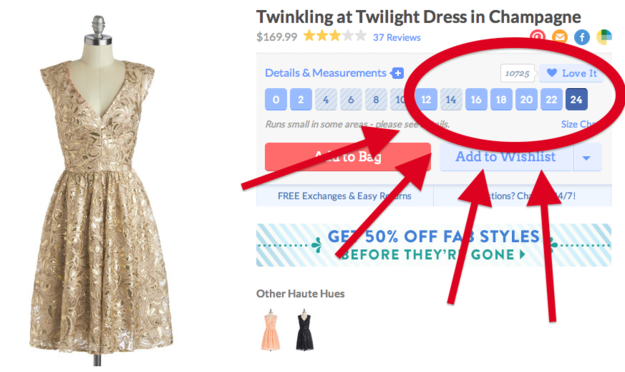There is a mix of cool and unusual collaborations happening across the board right now. From doing good to shared economies, technology, wearable tech, groundbreaking innovations, mindful consumption, and conscious consumerism, the industry is taking some revolutionary steps forward.
If you're still new to bitcoin, it might be time you got acquainted because online European merchants are now accepting the digital currency via the merchant solution, Paymium. By using Paymium's API or plugins, bitcoin payments are not only cheap, but global, and more secure than anything else.
Ever want to design your own clothes but lack the sewing skills? Well, the Seattle-based company Bombsheller has just opened its own factory that creates customizable clothing. While the company is currently concentrating on leggings, customers can choose their own designs and tailor the size and length of the garments to their own specific measurements.
With headquarters across the street from each other in Brooklyn, West Elm and Etsy share many of the same values like supporting emerging artists and telling a story about the products they sell and who makes them. They both understand that the key is to create a connection with consumers through a curated selection of merchandise. What began with a collaborative catalog and evolved to Etsy pop-up shops in select West Elm locations, has now led to the creation of initiatives supporting local artisans and the launch of Etsy's wholesale marketplace. Now West Elm lovers can shop the retailer's Etsy page, West Elm Local, to see their favorite pieces and shop props from the catalog.
In Japan, you can now give clothes a test run before deciding whether you want to keep or return them. Japan's Fast Retailing Co has recently launched a store using its GU Fitting service, which allows customers to try on up to 3 items after giving their name and phone number details. They can wear the clothing outside of the store for as long as they like under one condition, that the items are returned/paid for that day. While this was only a trial and was restricted to 30 customers a day, this initiative is a great way for customers to really get a feel for the clothing they are investing in.
Microsoft Mobile and the British menswear designer Adrien Sauvage have teamed up to create the first wireless charging pants. With a Nokia DC-50 charging plate sewn into the pockets, these pants are made to recharge Nokia's Lumia smartphones and represent future innovations of our digital counterparts.
photo via Rude Baguette
If you're still new to bitcoin, it might be time you got acquainted because online European merchants are now accepting the digital currency via the merchant solution, Paymium. By using Paymium's API or plugins, bitcoin payments are not only cheap, but global, and more secure than anything else.
photo via The Independent
Ever want to design your own clothes but lack the sewing skills? Well, the Seattle-based company Bombsheller has just opened its own factory that creates customizable clothing. While the company is currently concentrating on leggings, customers can choose their own designs and tailor the size and length of the garments to their own specific measurements.
photo via West Elm
With headquarters across the street from each other in Brooklyn, West Elm and Etsy share many of the same values like supporting emerging artists and telling a story about the products they sell and who makes them. They both understand that the key is to create a connection with consumers through a curated selection of merchandise. What began with a collaborative catalog and evolved to Etsy pop-up shops in select West Elm locations, has now led to the creation of initiatives supporting local artisans and the launch of Etsy's wholesale marketplace. Now West Elm lovers can shop the retailer's Etsy page, West Elm Local, to see their favorite pieces and shop props from the catalog.
photo via springwise.com
In Japan, you can now give clothes a test run before deciding whether you want to keep or return them. Japan's Fast Retailing Co has recently launched a store using its GU Fitting service, which allows customers to try on up to 3 items after giving their name and phone number details. They can wear the clothing outside of the store for as long as they like under one condition, that the items are returned/paid for that day. While this was only a trial and was restricted to 30 customers a day, this initiative is a great way for customers to really get a feel for the clothing they are investing in.
photo vis Electronic Products
Microsoft Mobile and the British menswear designer Adrien Sauvage have teamed up to create the first wireless charging pants. With a Nokia DC-50 charging plate sewn into the pockets, these pants are made to recharge Nokia's Lumia smartphones and represent future innovations of our digital counterparts.





































